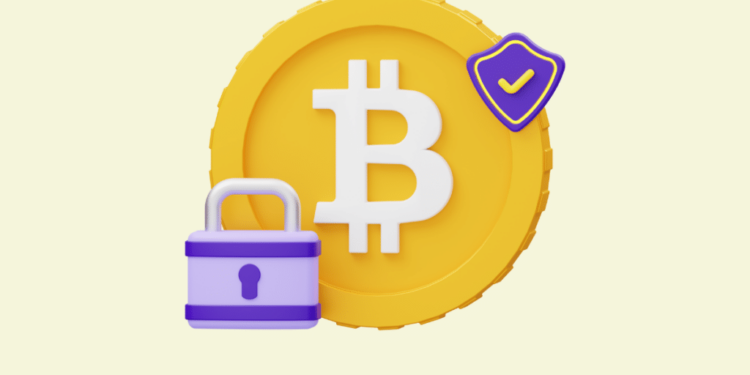Bitcoin security is a cornerstone of the cryptocurrency ecosystem, ensuring that digital assets remain safe from theft and fraud. As Bitcoin trading gains popularity, understanding the measures in place to protect transactions becomes increasingly crucial for both individual investors and institutional players. The introduction of innovative solutions like non-custodial swaps allows for seamless exchanges while maintaining robust cryptocurrency security. With the rise of tokenized markets and cross-chain trading, the importance of securing Bitcoin and its transactions is more evident than ever. By focusing on Bitcoin’s inherent security features, users can confidently navigate the crypto landscape while safeguarding their investments.
The security of Bitcoin, often referred to as its “digital fortress,” plays a vital role in the broader landscape of cryptocurrency. As the market evolves with advanced trading mechanisms, terms like “blockchain safety” and “decentralized asset protection” have emerged, highlighting the need for secure digital exchanges. Many players in the crypto space are increasingly looking towards solutions that combine seamless trading with enhanced safety measures, especially in non-custodial frameworks. The integration of these security standards is essential as investors engage with diverse assets through tokenized platforms and cross-chain methodologies. Understanding the landscape of Bitcoin security is fundamental for anyone involved in the digital currency realm.
The Future of Cryptocurrency Trading
As the cryptocurrency market continues to mature, the demand for secure and efficient trading solutions is at an all-time high. The innovative approach taken by Portal aims to set a new standard in Bitcoin trading, ensuring that user transactions are both streamlined and protected. With a focus on leveraging Bitcoin as a primary settlement layer, the initiative seeks to enhance the trading experience across various assets, whether traditional or decentralized. By eliminating the need for custodians, traders can engage in buy and sell activities with greater peace of mind, knowing that their assets are safeguarded by Bitcoin’s robust blockchain technology.
The rise of non-custodial swaps represents a seismic shift in how cryptocurrency trading is conducted. This method empowers users to maintain full control over their assets while participating in the market without intermediaries. By integrating these swaps into their framework, Portal and similar platforms are not only facilitating easier access but also significantly boosting overall cryptocurrency security. As more traders recognize the benefits of direct asset control, the potential for widespread adoption and trust in Bitcoin trading solutions is poised to increase.
Enhancing Bitcoin Security in Cross-Chain Trading
Bitcoin security plays a crucial role in the future of cross-chain trading as it reinforces user confidence in the ecosystem. By utilizing Bitcoin’s unparalleled security measures, trading platforms like Portal are paving the way for more seamless interactions between different blockchain networks. The implementation of secure systems can drastically reduce risks associated with significant vulnerabilities that plague wrapped tokens and custodial bridges. As a result, traders can navigate cross-chain transactions knowing that they are backed by Bitcoin’s solid foundation.
Furthermore, investing in advanced security protocols directly influences the efficiency of tokenized markets. As blockchain technology becomes more interconnected, the need for dependable security measures becomes ever more critical. The initiatives undertaken by companies like Portal highlight the importance of Bitcoin’s security infrastructure, ensuring that even as trading expands across various platforms, the integrity of transactions remains uncompromised. This focus on Bitcoin security not only protects users but also contributes to the overall stability and growth of the cryptocurrency landscape.
The Mechanics of Tokenized Markets
Tokenized markets represent an evolution in how assets are traded in the digital space, enabling the transformation of real-world assets into blockchain-based tokens. As the functionality of these markets increases, they create opportunities for greater accessibility and liquidity. Companies like Portal are at the forefront of this movement, providing platforms for trading that incorporate the security of Bitcoin, ensuring that not only are transactions faster, but they are also conducted in a highly secure environment.
The integration of tokenized markets with Bitcoin enables a unique trading ecosystem that reinforces security and efficiency. As assets are tokenized, each transaction is tracked on a decentralized ledger, minimizing the potential for fraud and unauthorized access. By utilizing Bitcoin-grade security, users can trust that their investments in tokenized markets remain protected, offering them peace of mind as they explore new trading avenues. This combination of innovation and security is set to redefine asset trading in the rapidly evolving world of cryptocurrencies.
Non-Custodial Swaps: A Revolutionary Approach
The concept of non-custodial swaps is revolutionizing how assets are exchanged in the cryptocurrency space. Unlike traditional systems where third parties hold assets during the trading process, non-custodial swaps empower users to conduct transactions directly with one another. This model not only enhances the trading experience by making it faster but also inherently improves cryptocurrency security, as users retain control over their assets throughout the process. Companies like Portal are pioneers in integrating this technology into their trading platforms.
By offering non-custodial swaps, Portal aims to eliminate the risks associated with custodial services, which are often targets for hacks and breaches. This approach encourages traders to engage with the platform more confidently, knowing their assets are not exposed to unnecessary vulnerability. Moreover, it aligns perfectly with the principles of decentralization, attracting traders who prioritize security and autonomy in their trading strategies. The future of cryptocurrency trading hinges on these innovations, which will ultimately lead to a more secure and trustworthy market.
Investment Trends in Bitcoin Startups
The recent $50 million investment in Portal underscores a growing trend of institutional interest in Bitcoin startups. As the market matures, investors are recognizing the potential of companies that prioritize security and innovation in cryptocurrency trading. This influx of capital not only bolsters the financial stability of these startups but also enhances their ability to develop cutting-edge solutions that cater to evolving market demands. This trend is reflective of a broader belief in Bitcoin’s role as a cornerstone of the financial future.
With investments flooding into Bitcoin startups, the potential for groundbreaking advancements within the cryptocurrency space is vast. These startups are now able to focus on refining their technologies and expanding their offerings to include features like cross-chain trading and improved security mechanisms. The growing attention from investors signals a strong belief in the long-term viability of Bitcoin trading platforms, which prioritizes user experience and security — essential components for attracting a wider audience to the cryptocurrency market.
The Role of Institutional Liquidity Providers
Institutional liquidity providers play a crucial role in the growth and stability of the Bitcoin and cryptocurrency markets. By offering solid liquidity, these organizations enhance market efficiency and foster confidence among retail traders. Their participation is particularly impactful in tokenized markets where the integration of various asset classes can lead to increased trading volumes. Portal’s strategy of attracting institutional partners aims to create a more robust liquidity pool, capable of supporting the increasing complexities of cross-chain trading.
Moreover, institutional involvement tends to act as a catalyst for positive market sentiment, encouraging more traders to enter the space. When institutional liquidity providers affirm their commitment to Bitcoin and decentralized trading, it sends a signal to the broader market about the asset’s legitimacy and potential for growth. As these capital sources become more common in the cryptocurrency ecosystem, they not only facilitate transactions but also enhance overall cryptocurrency security and stability.
The Importance of Pilot Programs with Wallets
The development of pilot programs with wallets and custody platforms is essential for testing new trading solutions within the cryptocurrency space. These initiatives allow companies like Portal to assess the practicality and efficiency of their non-custodial swaps while identifying potential challenges in real-world scenarios. Such programs are pivotal in demonstrating how improved Bitcoin security can integrate with existing systems, ensuring users can trade securely and effectively.
Moreover, collaborating with wallets enhances user accessibility and engagement in the trading ecosystem. By providing users with reliable, secure options for managing their assets, these pilot projects can help bridge the gap between traditional and decentralized finance, fostering wider adoption of cryptocurrency trading. The insights gained from these programs will be invaluable for future developments in the industry, ultimately shaping a more secure and user-friendly trading environment.
Challenges in Cryptocurrency Security
While advancements in Bitcoin security continue to evolve, significant challenges still exist within the cryptocurrency landscape. Issues such as hacking, phishing, and smart contract vulnerabilities pose ongoing risks to traders and users alike. For platforms like Portal, addressing these security challenges is paramount in building trust and encouraging user adoption. Collaborating with security experts and leveraging advanced technologies can help mitigate these risks, allowing traders to feel more secure in their transactions.
Additionally, the need for user education cannot be overstated. Many traders may not fully understand the implications of security measures or the vulnerabilities that exist in the cryptocurrency space. Investing in educational resources that inform users about best practices for maintaining their assets can help mitigate risks. By fostering a more informed community, platforms can enhance the overall security environment, contributing to a more stable and resilient cryptocurrency ecosystem.
Looking Ahead: The Evolution of Bitcoin Trading
As Bitcoin continues to gain traction as a predominant force in the financial markets, the evolution of its trading mechanisms promises exciting developments. With the backing of substantial investment, companies like Portal are positioned to drive innovative solutions that prioritize user security while improving market efficiency. The future of Bitcoin trading will likely see a more seamless integration of cross-chain capabilities, tokenized assets, and robust security measures, addressing current gaps and user concerns.
Ultimately, the trajectory of Bitcoin trading is deeply intertwined with advancements in technology and evolving user demands. As traders seek more secure and efficient ways to operate within the cryptocurrency landscape, companies that adapt their offerings to align with these preferences will not only thrive but also contribute to the overall maturation of the market. This journey toward enhanced Bitcoin security and functionality will shape the next era of cryptocurrency trading, setting new benchmarks for industry standards.
Frequently Asked Questions
What are the best practices for ensuring Bitcoin security while trading?
To ensure Bitcoin security while trading, users should employ strong, unique passwords, activate two-factor authentication (2FA), use reputable wallets (preferably hardware wallets for significant amounts), and verify the authenticity of platforms prior to trading. Furthermore, avoiding custodial services and opting for non-custodial swaps can enhance security against hacks and fraud.
How does non-custodial trading enhance Bitcoin security?
Non-custodial trading enhances Bitcoin security by allowing users to maintain control over their private keys, reducing the risk of hacks associated with system vulnerabilities in custodial platforms. By using non-custodial swaps, traders can conduct transactions directly on the blockchain, further securing their assets from third-party risks.
What is Bitcoin-grade security in the context of cryptocurrency trading?
Bitcoin-grade security refers to the high level of security that the Bitcoin blockchain offers, characterized by its decentralized nature, strong encryption, and resistance to fraud. Solutions like BitScaler aim to leverage this level of security to allow users to trade across tokenized and cross-chain markets without relying on less secure methods.
Why are custodial bridges viewed as less secure in Bitcoin trading?
Custodial bridges are viewed as less secure in Bitcoin trading due to their reliance on third-party custodians to manage users’ assets. This setup creates vulnerabilities where users risk losing their funds if the custodian is hacked or manages funds improperly. Non-custodial options mitigate this risk by giving users direct control over their assets.
How can Bitcoin be used as a settlement layer in cross-chain trading?
Bitcoin can serve as a settlement layer in cross-chain trading by providing a secure and reliable foundation for finalizing transactions across various blockchain networks. By anchoring tokenized markets directly to the Bitcoin blockchain, traders can achieve high levels of security and trustworthiness in their cross-chain transactions.
What role does institutional liquidity play in enhancing Bitcoin security?
Institutional liquidity can enhance Bitcoin security by providing robust funding and stability to trading platforms, which can invest in advanced security measures. By integrating institutional capital, platforms can better withstand market fluctuations, ensuring a secure trading environment that fosters trust among users.
How does integrating wallets and custody platforms improve Bitcoin security?
Integrating wallets and custody platforms allows for the implementation of secure, user-friendly interfaces that support non-custodial swaps and other operations. This enhances Bitcoin security by ensuring that users can easily manage their private keys and conduct transactions without exposing themselves to unnecessary risks.
| Funding Amount | Purpose | CEO Statement | Future Plans |
|---|---|---|---|
| $50 million | To enhance Bitcoin’s dominance in tokenized markets | “We want users to trade any asset… with Bitcoin-grade security” | Expand grants program and integrate with wallets and custody platforms for non-custodial swaps. |
Summary
Bitcoin security is at the forefront of cryptocurrency innovation with the substantial funding raised by Portal to enhance trading processes. By securing $50 million, the startup aims to develop solutions that ensure Bitcoin’s robustness in both tokenized and cross-chain markets. Their focus on operational security mitigates risks associated with traditional wrapped tokens and custodial systems, thus promoting a safer trading environment. As Portal moves forward with its ambitious plans, the emphasis on Bitcoin-grade security could potentially lead to a transformation in global crypto liquidity.
Unlock the power of AI for your WordPress site with Autowp, the ultimate AI content generator and AI content creator plugin. Whether you need engaging blog posts, product descriptions, or web content tailored to your audience, Autowp utilizes advanced algorithms to craft high-quality content effortlessly. Say goodbye to writer’s block and hello to seamlessly generated content that enhances your online presence. To remove this promotional paragraph, upgrade to Autowp Premium membership.












